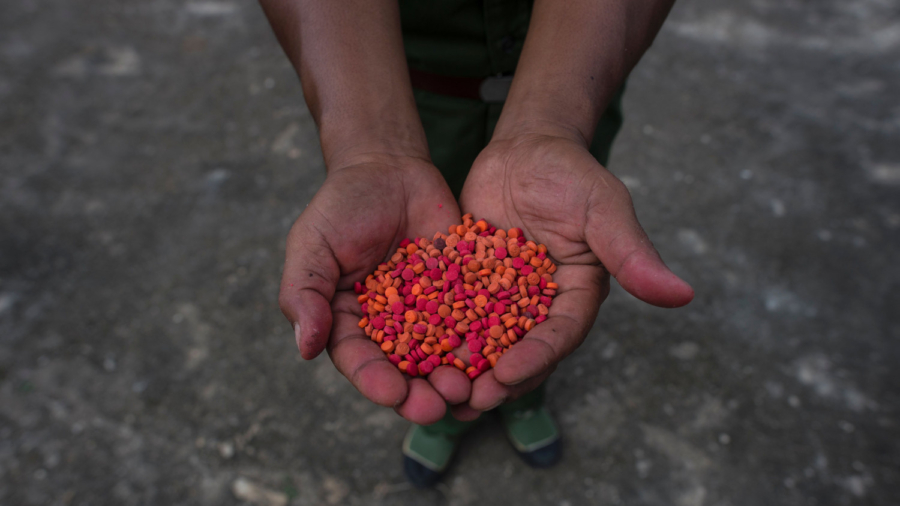China has some of the world’s most severe penalties for drug abuse, but Chinese officials, who are accustomed to breaking rules, are flagrantly ignoring the country’s drug laws.
“Like the high number of officials who have been exposed for their licentious and immoral behavior, taking drugs has become the new status symbol for Chinese Communist Party officials,” said China current affairs commentator Tang Jingyuan. He pointed to Chinese authorities’ frequent issuance of disciplinary notices amid cases of official drug abuse continuing to emerge in headlines.
China’s National Narcotics Control Commission released a report in 2016 stating that 2.5 million people currently abuse drugs, an increase of 6.8 percent from the year prior. Meanwhile, courts throughout China concluded the trials of 139,024 drug-related cases in 2015—an increase of 30.19 percent from the year prior, according to the latest data from China’s Supreme Court.
In November 2017, the provincial anti-corruption watchdog in southern China’s Hunan Province issued a warning to party officials on its website, urging them to stay away from friends who do drugs and drink alcohol. The announcement listed Ren Zhongwei, deputy director of the propaganda department at Anxiang County in Hunan, as an example. Ren was penalized for using drugs and was placed on party probation for two years in April 2017.

Gong Weiguo, the former mayor of Linxiang City in Hunan, was sentenced in July to seven years in prison. Two years after he was placed under investigation for drug addiction, a local court found him guilty of bribery and abuse of power. In addition, Gong was also found to have sought the services of prostitutes and had inappropriate relationships with many women.
Nicknamed the “drug mayor,” Gong reportedly took illicit drugs for two years, including methamphetamine, according to the Chinese regime’s state mouthpiece People’s Daily. Before his sentence in July, Xinhua state news agency published Gong’s confession, in which he stated that drugs became his best cure against stress and hangovers.
In 2015, Hengyang County in Hunan investigated and prosecuted 61 officials who were discovered to have abused drugs. They spanned different sectors of the local government, from the agriculture to construction to traffic bureaus. One official who was caught belonged to the local anti-corruption office that was supposed to catch and prevent this illicit behavior among officials.
Some party officials have decided to sell drugs for profit. Xiao Jihe, former deputy chief at the Quality and Technical Supervision Bureau of Changting County in southeastern China’s Fujian Province, had a background in chemistry. He began synthesizing ephedrine, a compound that is a precursor to making crystal methamphetamine, commonly known as ice. He was arrested in July 2009 and was sentenced to 1 1/2 years in prison, according to People’s Net.
According to the Chinese news portal Tencent, Xiao was convicted of drug smuggling and not the more serious offense of selling illicit drugs—which carries a sentence of 10 years in prison—because at the time, China did not have laws enacted against manufacturing drugs. Upon his release, however, he returned to making the same drug, and was arrested again in September 2014.
“This means the whole party bureaucracy has something fundamentally wrong at its roots,” Tang said. He further noted that the Party has a long history of relying on drugs for income. During the period when the Party made its headquarters in Yan’an, Shaanxi Province, between 1936 and 1949, Communist Party members grew and sold opium in order to raise funds for war efforts.
Gao Yiqing contributed to this report.
From The Epoch Times
Recommended Video:

